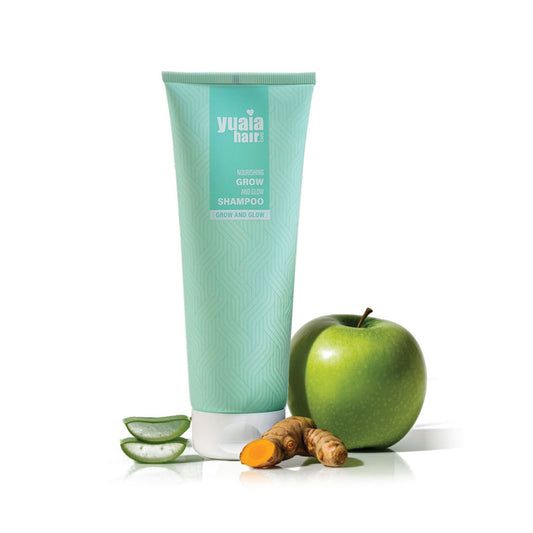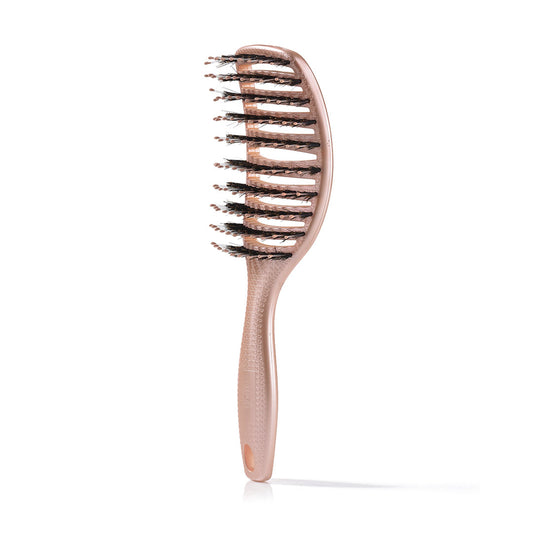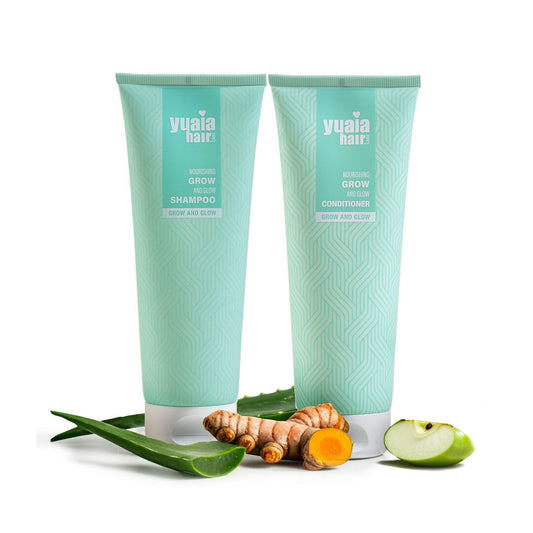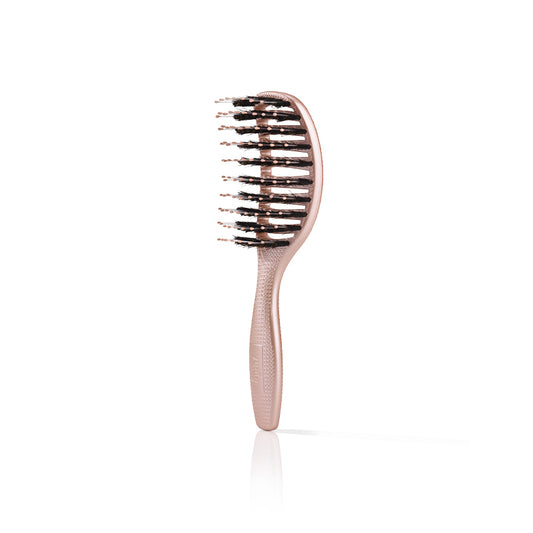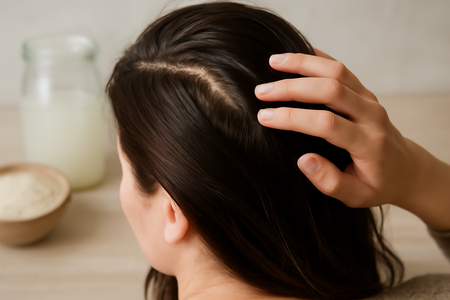
Is rice water good for dry scalp? Exploring its benefits and myths

by Nanna Bundgaard | 24. July 2025 | Reading time: 6 minutes
Read more about the authorIn recent years, natural hair care remedies have surged in popularity, with rice water emerging as a trendy topic for those seeking to enhance their scalp health. As more people turn to nature for solutions, rice water, a traditional practice in many cultures, has gained attention for its potential benefits. But is rice water really good for a dry scalp?
Why is dry scalp a common issue?
Dry scalp is a prevalent concern for many, characterized by itching, flaking, and irritation. These symptoms can be uncomfortable and sometimes embarrassing, prompting individuals to seek effective, natural solutions. The quest for relief often leads to exploring various remedies, including rice water, which is touted for its potential to alleviate dryness.
A closer look at rice water's claims
Anecdotal evidence suggests that rice water can be beneficial for dry scalp due to its nutrient-rich composition. This traditional remedy is believed to nourish the scalp, providing relief from dryness and irritation. However, while these claims are widespread, it's important to examine the evidence supporting them to understand rice water's true efficacy.
Rice water is often praised for its high content of vitamins, minerals, and antioxidants. These nutrients are thought to nourish the scalp and promote healthier hair. Despite the popularity of rice water as a natural remedy, it is essential to note that scientific research specifically linking rice water to dry scalp treatment is limited. Most of the support for rice water comes from user experiences and social media trends, rather than robust scientific data.
For those exploring natural solutions for dry scalp, it's crucial to consider both the benefits and limitations of using rice water. While it may offer some relief, it's equally important to manage expectations and be aware of potential drawbacks, such as product build-up if not rinsed thoroughly.
As you delve into the world of natural hair care, remember that finding the right solution often involves a bit of experimentation. If you're curious about trying rice water, ensure that you follow proper application methods and stay informed about its potential effects on your scalp health. Additionally, incorporating a gentle, sulfate-free shampoo can complement your natural hair care routine, providing nourishment without compromising your scalp's balance.
What is rice water and how is it made?
Rice water is the starchy liquid left over after rice has been soaked or cooked. To create rice water, you can either soak rice in water for about 30 minutes or boil the rice and strain the water afterward. Some enthusiasts prefer fermenting the rice water by letting it sit at room temperature for a day or two, which is believed to enhance its potential benefits. This traditional remedy has roots in various cultures, particularly in Asia, where it has been used for centuries to promote hair health.
Nutrient content and scalp nourishment
Rice water is rich in vitamins such as B and E, along with minerals and antioxidants. These nutrients are believed to nourish the scalp, potentially alleviating dryness and irritation. Vitamin B is known for supporting the maintenance of normal hair, while antioxidants can help protect the scalp from environmental stressors. Although the scientific evidence is limited, many users report that rice water leaves their scalp feeling more balanced and less dry.
Anti-inflammatory and soothing effects
Fermented rice water is often highlighted for its potential anti-inflammatory properties. The fermentation process may enhance the soothing effects of rice water, making it a popular choice for those experiencing redness, itching, and inflammation associated with a dry scalp. While anecdotal evidence supports these claims, it's important to approach them with an understanding of the individual nature of scalp conditions.
Scalp microbiome and balance
The scalp microbiome plays a crucial role in maintaining scalp health. A balanced microbiome can help prevent dryness and irritation, and rice water may support this balance. Its gentle, sulfate-free nature avoids stripping the scalp of its natural oils, potentially preventing further dryness. Users looking to incorporate rice water into their routine should focus on maintaining this balance to achieve optimal results.
Potential drawbacks: Product build-up concerns
One of the potential downsides of using rice water is the risk of product build-up if not properly rinsed. Residue left on the scalp can lead to flaking, which might be mistaken for or contribute to dryness. To avoid this, ensure thorough rinsing after applying rice water. Additionally, using a Curvy Brush can help gently remove any lingering residue and promote a healthy scalp environment.
Mixed evidence and anecdotal support
While many people swear by the benefits of rice water for improving scalp conditions, the evidence remains mostly anecdotal. Social media trends and user testimonials often highlight improvements in scalp health after consistent use. However, due to the lack of robust scientific data, it's essential to manage expectations and consider personal experiences when determining if rice water is suitable for your scalp care routine.
Get a 10% discount code sent to you
Receive the best tips and tricks for your hair from Lotte and Nanna 🥰
How to use rice water safely for dry scalp
Applying rice water to your scalp can be a simple yet effective addition to your hair care routine. Start by preparing your rice water, either through soaking or fermenting, as previously discussed. To apply, pour the rice water over your scalp and gently massage it in, ensuring even distribution. Allow it to sit for 20 to 30 minutes, then rinse thoroughly with lukewarm water. It's important to ensure all residue is washed out to avoid build-up. For optimal results, use rice water once or twice a week, depending on your scalp's response. Always monitor how your scalp reacts and adjust the frequency accordingly.
Are there alternatives to rice water for dry scalp?
While rice water is a popular natural remedy, there are other options available for those seeking relief from dry scalp. Ingredients like aloe vera, coconut oil, and tea tree oil are known for their moisturizing and soothing properties. Additionally, at Yuaia Haircare, we offer our sulfate-free Grow and Glow shampoo, which provides gentle, nourishing care for dry scalps. This shampoo can be an excellent alternative for those looking to maintain a healthy scalp without the risk of harsh chemicals.
Frequently asked questions
Can rice water help with dandruff?
Rice water's nutrients and antioxidants may assist in addressing dandruff symptoms. Its potential soothing and anti-inflammatory properties could reduce irritation and flakiness, common with dandruff. However, results can vary, and it is important to observe how your scalp responds.
Is rice water suitable for all hair types?
Rice water can be beneficial for various hair types, but individual reactions may differ. It's advisable to perform a patch test on a small area of your scalp before full application to ensure no adverse reactions occur. Adjust usage based on how your scalp and hair respond.
What should I do if I experience build-up from rice water?
If you notice build-up from rice water, it is important to thoroughly rinse your hair and scalp. Using a gentle brush, such as the Curvy Brush, can help remove any residue while promoting a healthy scalp environment. Additionally, consider reducing the frequency of rice water applications to prevent future build-up.
Get a 10% discount code sent to you
Receive the best tips and tricks for your hair from Lotte and Nanna 🥰
 2-4 day UK delivery
2-4 day UK delivery
 25.000+ satisfied customers
25.000+ satisfied customers
 Satisfaction Guarantee
Satisfaction Guarantee


















